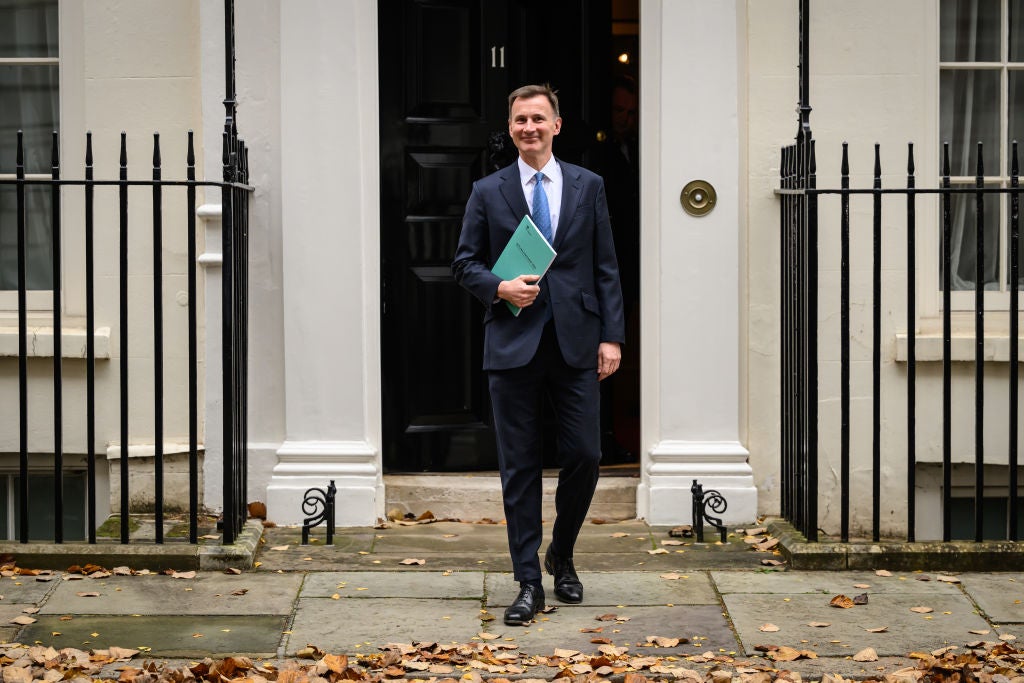
UK Chancellor Jeremy Hunt delivered the country’s annual Autumn Statement on Wednesday, pledging £960m ($1.2bn) of investment by 2030 for a new “green industries growth accelerator” programme.
The programme will support manufacturing within clean energy sectors, focusing specifically on the ramping up of carbon capture utilisation and storage (CCUS), hydrogen, offshore wind, electricity grid networks and nuclear energy.
The statement also extended the Climate Change Agreement Scheme, which will give energy-intensive businesses like steel, ceramics and breweries approximately £300m of tax relief every year from 2025 until 2033 to “encourage investment in energy efficiency and support the net zero transition”. Any electricity generation projects undertaken from 22 November will be exempt from the electricity generator levy, a 45% charge on receipts generated from the production of wholesale electricity sold above the average benchmark price of £75 per megawatt hour.
The country’s grid, which has been a source of concern recently as pressure mounts to expand its capacity to accommodate a growing backlog of renewables projects ready to connect, was also on the agenda. The statement acknowledged that “substantive action” is required to address the lengthy wait projects face to connect to the electricity grid and pledged to reform the grid connection process. This will include freeing up 100GW of capacity as part of the Connections Action Plan. The government also recently announced plans to compensate homeowners for powerlines built nearby in a bid to boost public support for grid upgrades.
Hunt opened his statement speech by boasting about the new oil and gas licences the government has granted in the North Sea, a move that received widespread backlash from environmental groups and opposition MPs when it was first announced by Prime Minister Rishi Sunak in July. Hunt maintained the Conservative Party line that the licences represent a pragmatic approach to net zero, suggesting that to abandon new oil and gas exploration would have been a “short-term decision”.
Environmental campaign groups and climate experts have criticised the Autumn statement for its overall lack of ambition relating to the climate crisis and energy Transition, particularly compared with the EU and the US, which both have substantial investment incentives packages in place to spur on green investment.
Peter Chalkley, director at non-profit research organisation the Energy and Climate Intelligence Unit, described Hunt’s measures as inadequate. “With the US, EU and China already powering ahead, does [the statement] risk looking too little, too late? The government will likely need to do more in the coming months to calm investor nerves.”
Chalkley also criticised the lack of mention of mandated improvements to energy efficiency and insulation for private housing in the statement, something campaigners have been calling for as an effective way to reduce emissions from housing and save citizens money on energy bills. The UK has some of the least-energy efficient housing in Europe and the many of country’s buildings are old. Improving energy efficiency across the board, including in hospitals and schools, could save billions of pounds per year in energy bills.
Juliet Phillips, senior policy advisor at climate think tank E3G, said in an emailed statement: “Private renters have drawn the short straw. Following the recent pledge to landlords that the Conservatives “will never” implement regulations that would require privately rented homes to be upgraded, landlords have next to no incentive to invest in energy-saving measures.” She added: “Millions of private rented households are stuck in cold, mouldy and leaky properties – including 1.6 million children – with no plan from the government to address this.”



